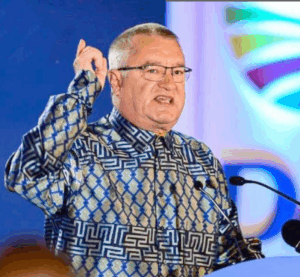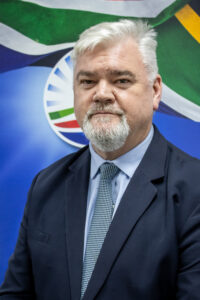The DA extends its condolences to the families who have lost loved ones in recent months as a result of horrific accidents on KwaZulu-Natal’s (KZN) roads. The men, women and children who have lost their lives are not just statistics – they were fathers, mothers, children, people who had families, aspirations, and dreams. One life lost is one too many.
Every day, KZN’s citizens navigate the roads yet they are all too aware of the risks that come with it —risks that result in heartbreak, loss, and profound suffering. Thousands of lives are lost on our roads each year, leaving families shattered and communities grieving. This narrative has to change, particularly as we head into the festive period, with an influx of visitors to our province.
Firstly, government must prioritize road safety education and awareness. A well-informed public is the first line of defence against accidents. There need to be comprehensive campaigns that teach road safety from an early age, instilling safe driving habits in our children and reinforcing them in our adults. It is not just about obeying rules; it’s about creating a culture of safety on our roads.
Secondly, there must be stricter enforcement of existing traffic laws. It is imperative that reckless drivers are held accountable. Speeding, driving under the influence, and distracted driving must not go unpunished. For this to happen, law enforcement agencies need the resources and support to ensure that these laws are enforced effectively.
Thirdly, we need to invest in KZN’s road infrastructure – many roads are in disrepair, lacking adequate signage, lighting, and pedestrian crossings. By prioritizing road maintenance and improving safety features, accidents can be significantly reduced. Safe roads are a shared responsibility between government and our communities, who must work together.
Lastly, government must embrace innovative solutions – technology can be our ally in this fight. From smart traffic signals that adapt to real-time conditions, to apps that promote safe driving practices, the tools are available to enhance road safety.
Despite increased funding, KZN continues to see high rates of accidents and fatalities. This indicates that current strategies are not effectively addressing the root causes of road safety. The question is: Why are they failing to produce tangible results?
While enforcement is important, it is only one piece of the puzzle. We cannot ignore the need for comprehensive education programs that teach safe driving practices. Engagement needs to include communities and foster a culture of responsibility, rather than relying solely on punitive measures.
KZN’s Department of Transport (DoT) emphasizes infrastructure improvements but often overlooks the critical aspect of timely execution. Delays in road maintenance and the implementation of safety measures have contributed to ongoing hazards. There needs to be a real commitment, to not just plan improvements but to see them through effectively.
The DA has consistently emphasised the importance of identifying and taking steps to reduce potential hazards through effective resource and operational planning. Increased efforts are the only way towards reducing fatalities and crashes on the road. Focus needs to be on drinking and driving, speed, pedestrian safety, vehicle roadworthiness, and execution of warrants of arrest. The DA pledges its support to all who are committed to saving lives and we are grateful to law enforcement, traffic and emergency staff who will be working during the festive period to make our roads safer.
KZN does not need new road traffic laws, it needs simple and cost-effective innovations that can save lives. The implementation of basic measures and a paradigm shift will go a long way to improving the current unacceptable situation on our roads.
This includes compulsory defensive driving training for truck and taxi drivers before licences are issued, increased law enforcement at truck stops to deter criminal activity, increased truck stops to avoid driver fatigue, heavy fines for operators of unroadworthy truck and taxi vehicles, an increase in RTI officers with round-the-clock visibility, strict monitoring of weigh bridges, enforcement of weight restrictions on certain roads, strict monitoring of overloading of passengers and goods, implementation and monitoring of a 100km maximum speed limit when transporting children and a zero tolerance attitude to drunk and reckless drivers.
Potholes, cracks, and uneven surfaces are increasingly common on KZN’s, leading to unsafe driving conditions and vehicle damage. The causes of this deterioration are multifaceted, including aging infrastructure, inadequate maintenance, and the impact of extreme weather conditions. Addressing these issues requires a concerted effort to invest in road repairs and upgrades to ensure a smoother and safer driving experience.
Roads connect our people, our cities, and our nation. They are more than just pathways; they are the lifelines of our economy, the veins through which the vitality of our country flows.
There is a dire need for continuous infrastructure upgrades if we are to keep pace with a growing population and increasing demand on our road networks. Investments in road safety are equally important. This includes infrastructure supports safe driving practices, with well-maintained signage, regular road inspections, and effective traffic management systems. Public awareness campaigns and education on road safety are also crucial in fostering a culture of responsibility and care among drivers. Looking forward, there is a growing emphasis on integrating technology with our road systems. Smart traffic management systems, real-time traffic updates, and innovations such as automated vehicles are set to revolutionize how we travel and manage our roads.
Implementing stricter traffic regulations, enforcing speed limits, and cracking down on drunk driving remain crucial steps in reducing accidents. Investing in better road infrastructure, including the construction of safer intersections, pedestrian crossings, and dedicated bike lanes, can also enhance road safety.
Achieving the targets set out by the DoT involves comprehensive efforts across multiple sectors, including transportation, infrastructure development, public health, law enforcement, and education. By working collaboratively and implementing evidence-based interventions, government, organisations, and communities can strive towards reducing road traffic accidents, ultimately contributing to the overarching goal of sustainable development.
The DA commends the DoT and the MEC for acknowledging the challenges our roads and road users face and for being honest that much still needs to be done. The 7th administration needs to be one of action. It cannot just be a body that conducts oversights, hosts workshops and meetings. Instead, it must identify problems and action solutions that are long term, viable, sustainable, modern, ground-breaking, bench-marking and cost-effective.
Out of the box and critical thinking are the tools the DoT needs to take itself forward. Road safety is not just a statistic; it is about human lives—our friends, our families, our neighbours. Together, we can foster a culture that prioritizes safety and responsibility. We must commit to taking action, advocating for change, and ultimately saving lives and recognize that a more holistic approach is required. It is time to move beyond rhetoric and take meaningful action that truly prioritizes the safety of all road users.








